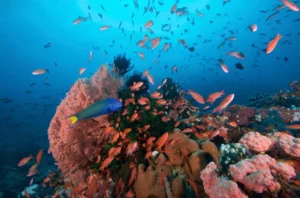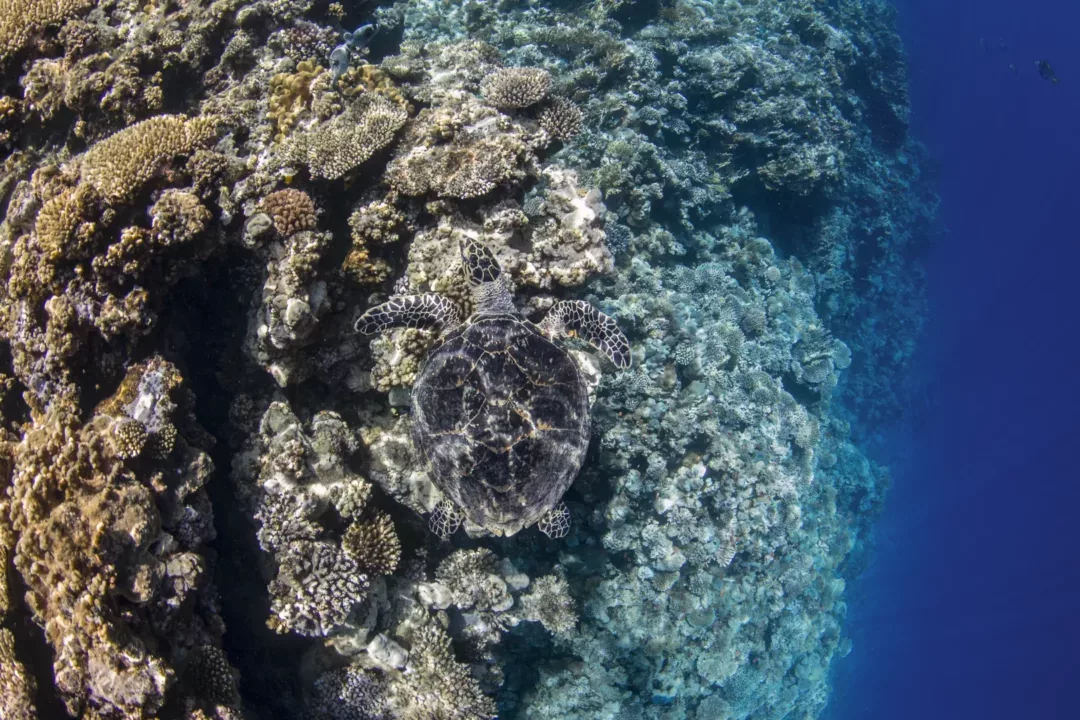The ICRI/UN Environment Grants Programme was designed to encourage projects that demonstrate and catalyse enhanced protection and management of coral reefs and related ecosystems, in particular by promoting resilience of ecosystems, dependent people and economic sectors. This joint initiative builds on the success of the first small grants programme from 2017.
Small grants for the 2021 edition were awarded to a number of organisations for 7 projects focused on the conservation and restoration of coral reefs, mangroves, and seagrass meadows.
This year’s grants were funded by the United States of America’s Department of State, the Prince Albert II of Monaco Foundation, the Swedish International Development Cooperation Agency, and the Great Barrier Reef Marine Park Authority.
Additional funding has been raised to support three small grants and these are currently being selected from the highest-ranking proposals received.
Corals
Fragments of Hope in Belize is a community-based organization located on the Placencia Peninsula, which focuses on the restoration of coral reef habitats and advocacy for the sustainable management of associated habitats. The grant will help expand the organisation’s work on the northern side of Belize, an area plagued by stony coral tissue loss disease. It will also support a mapping project of heatresistant corals across Belize, considered key as ocean temperatures increase.
The Perry Institute for Marine Science in the Bahamas is a non-profit that conducts research to revitalize oceans, and focuses on coral reefs, fisheries, mangroves, Marine Protected Areas, coastal ecosystems, and climate change. The grant will help them advance a community-based program to restore coral reefs in New Providence Island, Nassau, where previous conservation efforts have been conducted by scientists and managers.
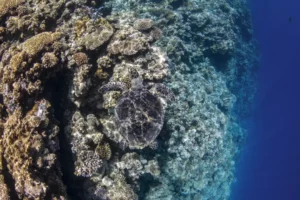
Seagrass meadows
The Gambia Department of Parks and Wildlife Management in the Republic of The Gambia will use the grant to try and reverse the decline of seagrass meadows in what is aimed to become the first community-led seagrass conservation and restoration effort in the south-western beach communities in Gunjur and Kartong.
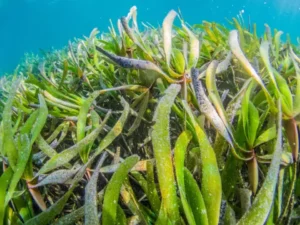
Blue Ventures in Madagascar is a marine conservation organisation supporting coastal fishers in remote and rural communities to rebuild fisheries and restore ocean life. The grant will be used to train community members to map and monitor the seagrass in three locally managed marine areas in the southwest of Madagascar, Velondriake, Manjaboake and Teariake, where seagrass meadows are threatened by destructive fishing. It is also fund an initiative for local fishers to diversify their income, by helping 150 small-scale fishers develop sea cucumber farms.
Mangroves
Misión Tiburón in Costa Rica is a non-profit working on ocean and marine wildlife conservation through education and scientific research, with a focus on sharks. The grant will be used to replant mangroves in the Hammerhead Shark Sanctuary at Costa Rica’s Golfo Dulce. Wetlands in the region are a nursery for scalloped hammerhead sharks which are critically endangered.
Multiple marine habitats
Fauna & Flora International is an international conservation charity and non-governmental organization dedicated to protecting the planet’s threatened wildlife and habitats. The Kenya Marine and Fisheries Research Institute is the lead research agency of the Kenyan government in marine, freshwater ecosystems, and aquaculture development. The grant will be used by the two organisations to map core seagrass habitats, advocate for their protection, and help conserve the species that live among them, namely fishes, turtles, and dugongs. The grant will also help fund mangrove restoration.
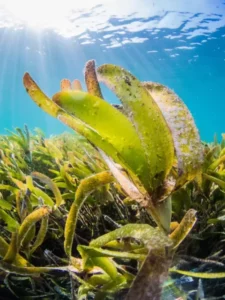
C3 Philippines in the Philippines is a community centred non-profit focusing on the conservation of dugongs and coastal ecosystems. The grant will be used to help with the development of a new governance system integrating conservation and sustainability into the use of coral reefs, mangroves, and seagrass meadows in the Green Island Bay.
